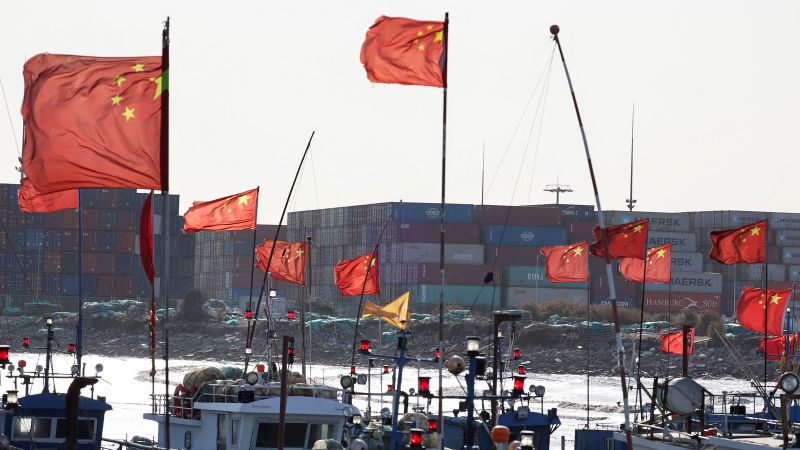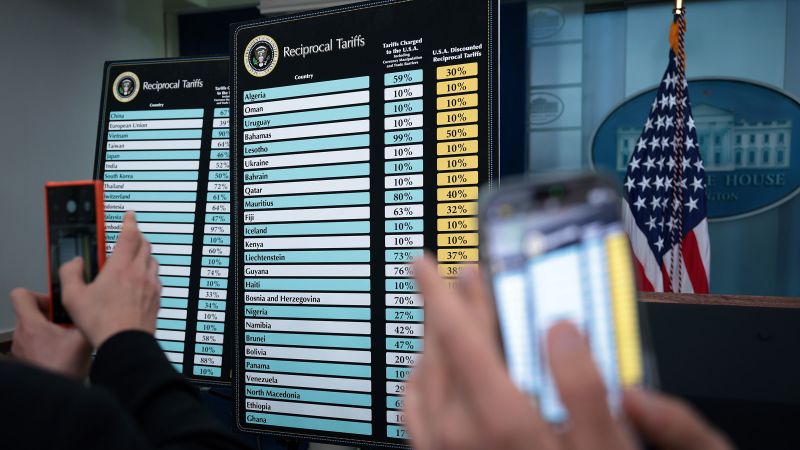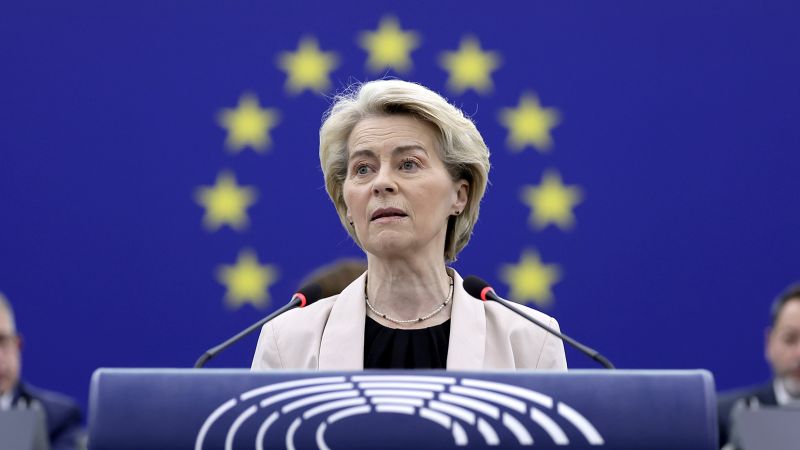Trump's Tariff Policies: Reversals, Impact, and Global Reactions

In a series of dramatic policy shifts, President Donald Trump's recent tariff decisions have sent shockwaves through global markets, triggering both relief rallies and deep uncertainty. The moves, characterized by a temporary pause on tariffs for most countries coupled with a significant escalation of tariffs on China, have left businesses, investors, and economists scrambling to assess the long-term implications.
Trump's Tariff U-Turn and Market Reaction
On April 9, 2025, President Trump announced a 90-day pause on reciprocal tariffs for the majority of countries, reducing rates to a universal 10%. This decision followed intense market volatility and concerns over the potential economic fallout from a full-blown trade war. The announcement sparked a historic rally on Wall Street, with the S&P 500 surging 9.5%, the Dow Jones Industrial Average jumping nearly 3,000 points, and the Nasdaq composite leaping 12.2%. European and Asian markets also responded positively, reflecting a collective sigh of relief from investors.
However, the reprieve was not extended to China. Instead, Trump escalated tariffs on Chinese imports to a staggering 125%, citing China's “disrespect” toward global markets and its retaliatory tariffs on U.S. goods. This move intensified trade tensions between the two economic superpowers, raising concerns about further economic consequences.
Economic Impact and Uncertainty
Analysts remain cautious about the long-term implications of Trump's tariff policies. While the temporary pause provided immediate relief, the underlying uncertainty about future trade policies continues to weigh on markets. Deutsche Bank Research economists and strategists noted that despite the market rally, the S&P 500 remained below its level prior to the initial tariff announcements. They also pointed out that the 10% minimum universal tariff still represents the largest tariff increase in decades, with limited visibility on what kind of trade deals the U.S. would find acceptable.
Morningstar's U.S. economist Preston Caldwell warned that markets may have reacted too optimistically to Trump's announcement, suggesting that further tariff reductions are needed to avoid economic fallout. Caldwell estimated that the average tariff rate still stands at around 20%, with the tariff rate on China at around 125%, effectively constituting a de facto embargo. He anticipates a major rise in inflation and an economic slowdown as a result.
Impact on Businesses and Consumers
The tariff policies have had a wide-ranging impact on businesses across various sectors. Companies like Walmart and Target had already anticipated significant price increases and supply chain disruptions, particularly for groceries, clothing, and electronics. PepsiCo noted declining snack sales due to inflationary pressures, which could be exacerbated by higher tariffs.
Small and medium-sized businesses (SMBs) are particularly vulnerable to the effects of tariffs. A PYMNTS report revealed that about half of SMBs rely on immediate sales or existing cash for survival, making them more susceptible to economic challenges. Middle-market companies also face increased uncertainty, with many CFOs expecting supply shortages, product delays, and the need to restructure their supply chains.
Consumers are also expected to bear the brunt of the tariff increases. Yale University’s Budget Lab estimated that food prices would rise by 2.8% overall, with fresh produce increasing by 4%. Apparel and electronics prices are also expected to climb, straining household budgets and contributing to broader inflationary pressures.
Global Reactions and Diplomatic Maneuvering
Trump's tariff policies have elicited mixed reactions from global leaders. While some countries have expressed willingness to negotiate, China has responded with defiance. The Chinese Ministry of Commerce issued a stern warning, stating that it would take necessary countermeasures to defend its interests. China has also been actively seeking support from other nations, particularly in Europe and Southeast Asia, to counter U.S. pressure.
However, China's efforts to rally international support have met with limited success. Australia, India, and even Russia have been reluctant to join China's cause, reflecting the complex geopolitical landscape and the economic pragmatism of individual nations.
The Luxury Car Market Under Threat
Beyond the broader economic implications, Trump's tariffs are also impacting specific industries, such as the luxury car market. European luxury carmakers like Ferrari, Rolls-Royce, and Aston Martin face a hammer blow from the tariffs, with prices virtually guaranteed to rise. Some brands, like JLR (Jaguar Land Rover), have already paused shipments to the U.S. to assess the situation.
Analysts predict that high-end buyers of Bentleys, Rolls-Royces, and Ferraris will bear the brunt of the price increases, as these brands have more flexibility to pass on costs to customers. Smaller brands may face pressure to scale back their vehicle lineups in the U.S. or focus on other markets.
Looking Ahead
As the 90-day tariff pause unfolds, the future of global trade remains uncertain. Trump's administration is expected to pursue “bespoke” deals with countries that refrained from retaliation, while continuing to pressure China to make concessions. The outcome of these negotiations will have far-reaching consequences for the global economy and the balance of power between nations.
Economists and analysts stress the importance of clarity and stability in trade policy to ensure market confidence and sustainable economic growth. The coming months will be crucial in determining whether the U.S. and its trading partners can find a path toward mutually beneficial agreements or whether the world is headed for a prolonged period of trade conflict and economic disruption.












